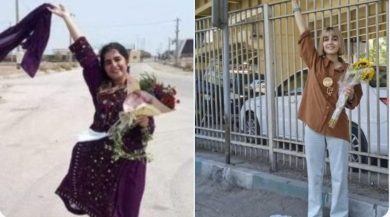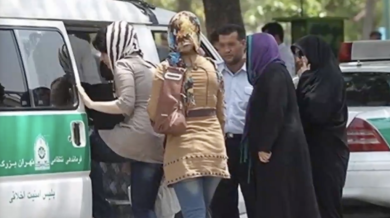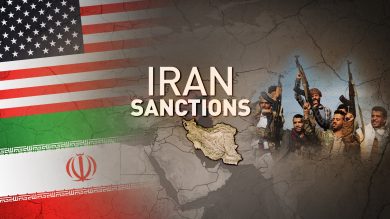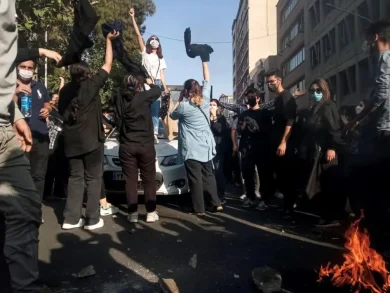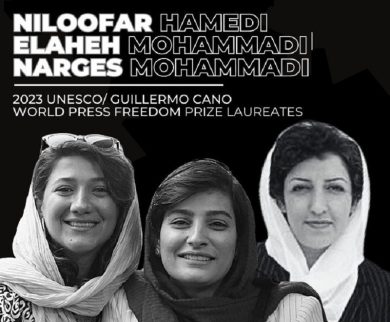The Islamic Revolutionary Guard Corps (IRGC) is one of the most powerful entities in Iran, exerting control over the country’s military, political, and economic structures. Over decades, the IRGC has built a sprawling network of power, amassing vast resources and funding its domestic repression and destabilizing activities across the Middle East. Targeted sanctions have emerged as a critical tool for weakening the IRGC’s influence, disrupting its financial networks, and holding its leaders accountable. Unlike broad sanctions that can harm civilians, targeted sanctions focus on the IRGC’s leadership, assets, and economic interests, undermining its ability to operate without exacerbating the suffering of ordinary Iranians.
This article explores the role of targeted sanctions in countering the IRGC’s power, examining their effectiveness, challenges, and the broader implications for regional and global security.
The IRGC’s Grip on Iran
The IRGC is far more than a military organization. It operates as a state within a state, using its vast influence to dominate Iran’s political, economic, and military spheres.
1. Political Control
• The IRGC has entrenched itself in Iran’s political system, with many of its former commanders holding key positions in the government.
• It acts as a key enforcer of the regime’s policies, using its power to suppress dissent and eliminate political opposition.
2. Economic Dominance
• The IRGC controls significant portions of Iran’s economy, including major sectors like energy, construction, telecommunications, and banking.
• Its engineering arm, Khatam al-Anbiya Construction Headquarters, is one of the largest contractors in the country, often securing lucrative government contracts without competition.
• The organization also engages in smuggling, money laundering, and other illicit activities to fund its operations and bypass sanctions.
3. Military Power
• Domestically, the IRGC suppresses protests and enforces strict social controls, often through its Basij paramilitary forces.
• Regionally, it uses its elite Quds Force to fund and arm proxy groups like Hezbollah, Hamas, and the Houthis, destabilizing the Middle East and extending Iran’s influence.
This extensive power base makes the IRGC a key target for sanctions aimed at curbing its activities and weakening its grip on Iran and the region.
The Role of Targeted Sanctions
Targeted sanctions focus on specific individuals, entities, and economic sectors linked to the IRGC. These measures aim to disrupt the IRGC’s operations without inflicting widespread harm on Iran’s civilian population.
1. Freezing Assets
• Sanctions freeze the assets of IRGC-affiliated individuals and entities held in foreign jurisdictions, cutting off access to critical financial resources.
• For example, the U.S. Treasury Department has designated numerous IRGC commanders and companies under its sanctions regime, effectively barring them from the global financial system.
2. Restricting Trade
• By targeting IRGC-controlled companies and industries, sanctions limit the organization’s ability to generate revenue.
• Sanctions on Iran’s oil and gas sector, a major source of IRGC funding, have significantly reduced its income, forcing the organization to rely on illicit activities.
3. Disrupting Illicit Networks
• The IRGC operates extensive smuggling and money laundering networks to fund its activities and evade sanctions. Targeted measures disrupt these operations by identifying and blocking the financial institutions and intermediaries involved.
4. Isolating the IRGC Globally
• Sanctions signal international condemnation of the IRGC’s actions, isolating the organization diplomatically and economically.
• Designating the IRGC as a terrorist organization, as the United States has done, further stigmatizes its activities and restricts its ability to operate internationally.
Effectiveness of Targeted Sanctions
Targeted sanctions have proven to be a powerful tool for weakening the IRGC’s influence, though their impact depends on consistent enforcement and international cooperation.
1. Financial Pressure
• Sanctions have significantly reduced the IRGC’s access to hard currency and limited its ability to fund operations. For example, restrictions on oil exports have slashed revenues that once fueled its activities.
• The freezing of assets and blocking of transactions disrupt the IRGC’s financial networks, forcing it to allocate resources more cautiously.
2. Weakening Proxies
• The IRGC’s regional proxies, such as Hezbollah and the Houthis, rely heavily on Iranian funding and arms. By restricting the IRGC’s financial and logistical capabilities, sanctions reduce the effectiveness of these groups.
• Reports suggest that sanctions have forced Hezbollah to scale back its operations and cut salaries for its fighters.
3. Deterring Foreign Businesses
• Targeted sanctions create a chilling effect on international businesses, discouraging them from engaging with IRGC-linked entities. This further isolates the IRGC and limits its economic opportunities.
Challenges to Implementation
While targeted sanctions are effective, their success depends on overcoming several challenges:
1. Sanctions Evasion
• The IRGC has developed sophisticated methods to evade sanctions, including the use of front companies, informal trade networks, and cryptocurrencies.
• Enhanced intelligence-sharing and monitoring are needed to identify and disrupt these networks.
2. Lack of Global Consensus
• Not all countries align with U.S. and EU sanctions on the IRGC. Nations like China and Russia continue to engage with Iran, providing the IRGC with alternative economic lifelines.
• Building a unified international front against the IRGC is critical for maximizing the impact of sanctions.
3. Humanitarian Concerns
• While targeted sanctions aim to minimize harm to civilians, broader measures, such as those on Iran’s financial sector, can have unintended consequences on ordinary Iranians.
• Balancing pressure on the IRGC with efforts to support the Iranian people is essential.
Global Implications of Targeted Sanctions
The IRGC’s activities extend far beyond Iran, making targeted sanctions a crucial tool for enhancing regional and global security.
1. Reducing Regional Destabilization
• By weakening the IRGC, sanctions disrupt its ability to fund and arm proxy groups that perpetuate conflict in the Middle East.
• This reduces the risk of escalation in hotspots like Yemen, Lebanon, and Iraq.
2. Countering Terrorism
• The IRGC’s support for groups like Hezbollah and Hamas poses a significant threat to global security. Targeted sanctions directly undermine these groups’ capabilities by cutting off their funding.
3. Strengthening International Norms
• Sanctions demonstrate the international community’s commitment to upholding human rights and countering state-sponsored violence and terrorism.
• They send a clear message that violations of international norms will not go unpunished.
Recommendations for Enhancing Impact
To maximize the effectiveness of targeted sanctions against the IRGC, the following measures are essential:
1. Strengthening Enforcement
• Invest in intelligence and monitoring to identify sanctions evasion tactics and disrupt illicit networks.
• Penalize entities and individuals that facilitate IRGC activities, even indirectly.
2. Building Multilateral Consensus
• Work with international partners to create a unified sanctions regime, ensuring that the IRGC cannot exploit divisions among global powers.
• Encourage countries like China and Russia to reduce their economic ties with Iran by highlighting the IRGC’s destabilizing impact.
3. Supporting Iranian Civil Society
• Complement sanctions with efforts to support Iranian activists, independent media, and grassroots organizations advocating for human rights and democracy.
• Provide tools and technologies to help Iranians bypass internet censorship and communicate securely.
Conclusion
Targeted sanctions are a vital tool for countering the IRGC’s influence and weakening its grip on power in Iran and the region. By focusing on the IRGC’s financial networks, proxies, and economic interests, these measures disrupt its ability to fund domestic repression and regional destabilization. While challenges remain, sustained international pressure, combined with support for Iranian civil society, can significantly undermine the IRGC’s operations and pave the way for greater stability and justice. The global community must remain committed to holding the IRGC accountable and ensuring that its actions do not go unchecked.
Join Our Newsletter!
Stay informed with the latest updates, news, and ways to take action in the fight for justice and global security. Sign up now to get updates delivered straight to your inbox!

